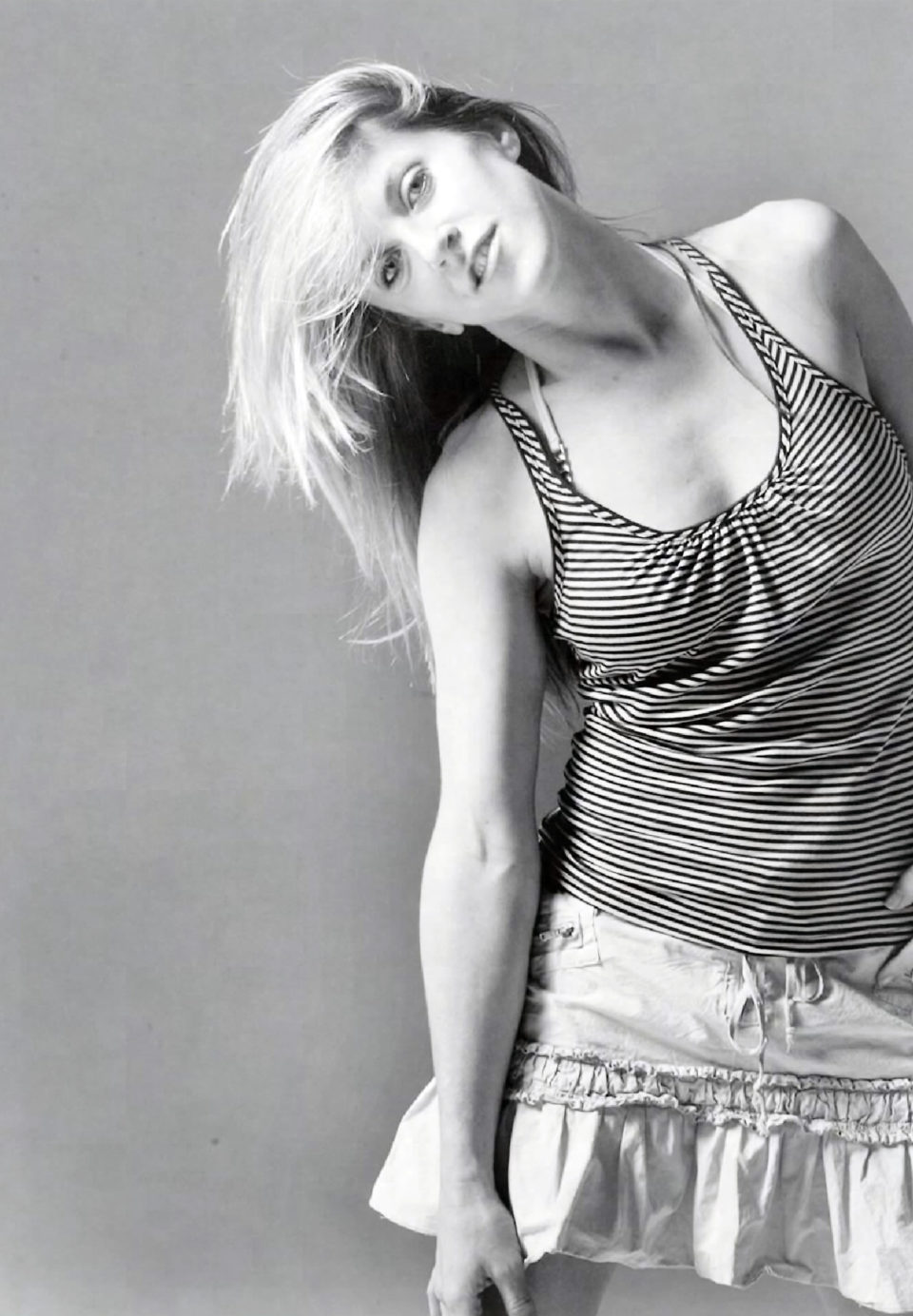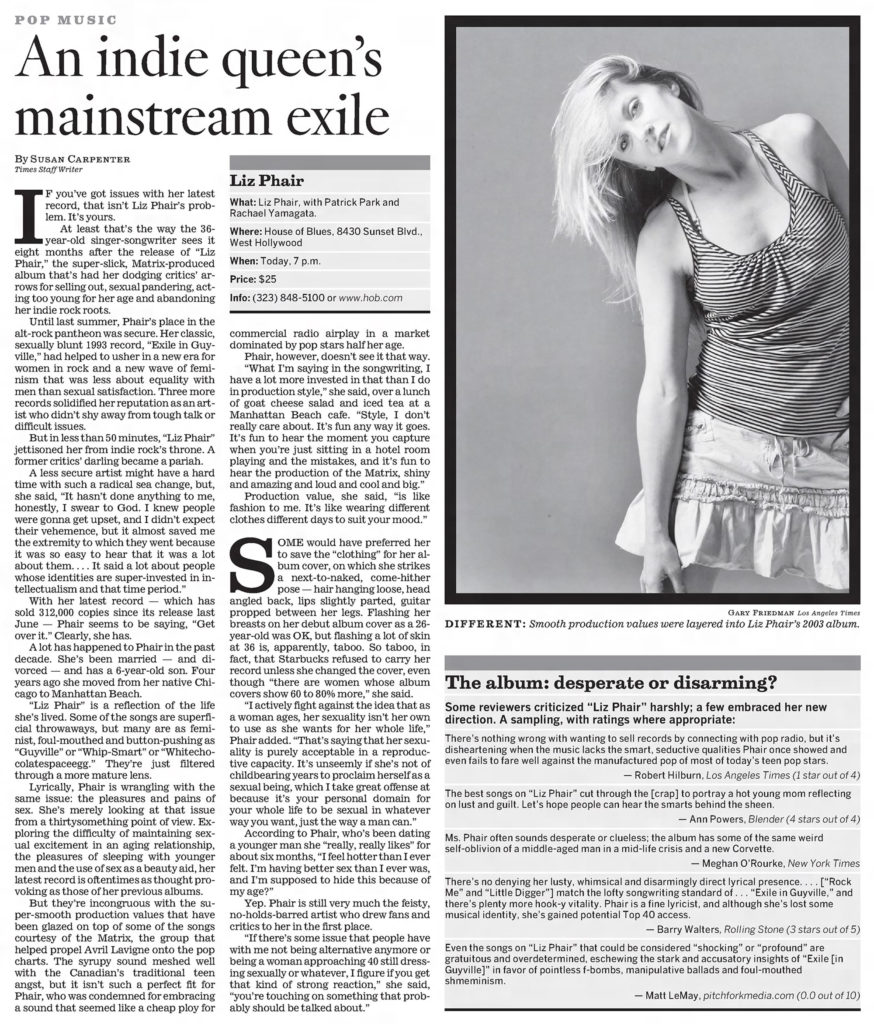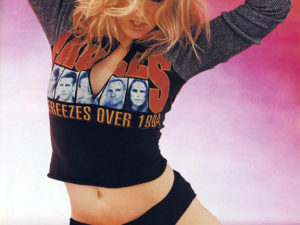By Susan Carpenter, Times Staff Writer
Los Angeles Times, February 26, 2004
At least that’s the way the 36-year-old singer-songwriter sees it eight months after the release of Liz Phair, the super-slick, Matrix-produced album that’s had her dodging critics’ arrows for selling out, sexual pandering, acting too young for her age and abandoning her indie rock roots.
Until last summer, Phair’s place in the alt-rock pantheon was secure. Her classic, sexually blunt 1993 record, Exile in Guyville, had helped to usher in a new era for women in rock and a new wave of feminism that was less about equality with men than sexual satisfaction. Three more records solidified her reputation as an artist who didn’t shy away from tough talk or difficult issues.
But in less than 50 minutes, Liz Phair jettisoned her from indie rock’s throne. A former critics’ darling became a pariah.
A less secure artist might have a hard time with such a radical sea change, but, she said, “It hasn’t done anything to me, honestly, I swear to God. I knew people were gonna get upset, and I didn’t expect their vehemence, but it almost saved me the extremity to which they went because it was so easy to hear that it was a lot about them… It said a lot about people whose identities are super-invested in intellectualism and that time period.”
With her latest record – which has sold 312,000 copies since its release last June – Phair seems to be saying, “Get over it.” Clearly, she has.
A lot has happened to Phair in the past decade. She’s been married – and divorced – and has a 6-year-old son. Four years ago she moved from her native Chicago to Manhattan Beach.
Liz Phair is a reflection of the life she’s lived. Some of the songs are superficial throwaways, but many are as feminist, foul-mouthed and button-pushing as Guyville or Whip-Smart or Whitechocolatespaceegg. They’re just filtered through a more mature lens.
Lyrically, Phair is wrangling with the same issue: the pleasures and pains of sex. She’s merely looking at that issue from a thirtysomething point of view. Exploring the difficulty of maintaining sexual excitement in an aging relationship, the pleasures of sleeping with younger men and the use of sex as a beauty aid, her latest record is often times as thought provoking as those of her previous albums.
But they’re incongruous with the super-smooth production values that have been glazed on top of some of the songs courtesy of the Matrix, the group that helped propel Avril Lavigne onto the pop charts. The syrupy sound meshed well with the Canadian’s traditional teen angst, but it isn’t such a perfect fit for Phair, who was condemned for embracing a sound that seemed like a cheap ploy for commercial radio airplay in a market dominated by pop stars half her age.
Phair, however, doesn’t see it that way.
“What I’m saying in the songwriting, I have a lot more invested in that than I do in production style,” she said, over a lunch of goat cheese salad and iced tea at a Manhattan Beach cafe. “Style, I don’t really care about. It’s fun any way it goes. It’s fun to hear the moment you capture when you’re just sitting in a hotel room playing and the mistakes, and it’s fun to hear the production of the Matrix, shiny and amazing and loud and cool and big.”
Production value, she said, “is like fashion to me. It’s like wearing different clothes different days to suit your mood.” Some would have preferred her to save the “clothing” for her album cover, on which she strikes a next-to-naked, come-hither pose – hair hanging loose, head angled back, lips slightly parted, guitar propped between her legs. Flashing her breasts on her debut album cover as a 26-year-old was OK, but flashing a lot of skin at 36 is, apparently, taboo. So taboo, in fact, that Starbucks refused to carry her record unless she changed the cover, even though “there are women whose album covers show 60 to 80% more,” she said.
“I actively fight against the idea that as a woman ages, her sexuality isn’t her own to use as she wants for her whole life,” Phair added. “That’s saying that her sexuality is purely acceptable in a reproductive capacity. It’s unseemly if she’s not of childbearing years to proclaim herself as a sexual being, which I take great offense at because it’s your personal domain for your whole life to be sexual in whatever way you want, just the way a man can.”
According to Phair, who’s been dating a younger man she “really, really likes” for about six months, “I feel hotter than I ever felt. I’m having better sex than I ever was, and I’m supposed to hide this because of my age?”
Yep. Phair is still very much the feisty, no-holds-barred artist who drew fans and critics to her in the first place.
“If there’s some issue that people have with me not being alternative anymore or being a woman approaching 40 still dressing sexually or whatever, I figure if you get that kind of strong reaction,” she said, “you’re touching on something that probably should be talked about.”
The album: desperate or disarming?
Some reviewers criticized Liz Phair harshly; a few embraced her new direction. A sampling, with ratings where appropriate:
There’s nothing wrong with wanting to sell records by connecting with pop radio, but it’s disheartening when the music lacks the smart, seductive qualities Phair once showed and even fails to fare well against the manufactured pop of most of today’s teen pop stars.
– Robert Hilburn, Los Angeles Times (1 star out of 4)
The best songs on Liz Phair cut through the [crap] to portray a hot young mom reflecting on lust and guilt. Let’s hope people can hear the smarts behind the sheen.
– Ann Powers, Blender (4 stars out of 4)
Ms. Phair often sounds desperate or clueless; the album has some of the same weird self-oblivion of a middle-aged man in a mid-life crisis and a new Corvette.
– Meghan O’Rourke, New York Times
There’s no denying her lusty, whimsical and disarmingly direct lyrical presence…. [“Rock Me” and “Little Digger”] match the lofty songwriting standard of… Exile in Guyville, and there’s plenty more hook-y vitality. Phair is a fine lyricist, and although she’s lost some musical identity, she’s gained potential Top 40 access.
– Barry Walters, Rolling Stone (3 stars out of 5)
Even the songs on Liz Phair that could be considered “shocking” or “profound” are gratuitous and overdetermined, eschewing the stark and accusatory insights of Exile [in Guyville] in favor of pointless f-bombs, manipulative ballads and foul-mouthed shmeminism.
– Matt LeMay, Pitchforkmedia.com (0.0 out of 10)
Featured Image: Liz Phair (Photo: Gary Friedman, Los Angeles Times)









